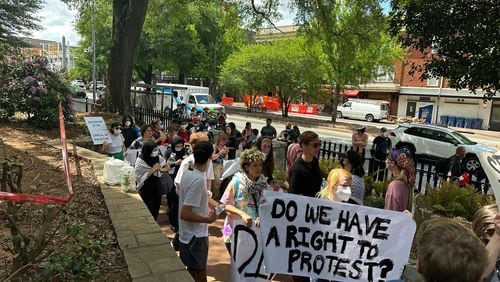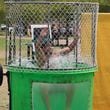Encouraged by the recent warmer weather in North Georgia, some of you who like to live on the edge might have already started planting.
But the best practice is to wait for the last spring freeze for cold-sensitive plants.
In metro Atlanta, that typically falls around March 30, but it has happened as late as April 25. Weather experts usually recommend waiting until about April 15 — Tax Day — to start putting plants in the ground or moving houseplants outside, just to be safe. The last thing you want is for your plant babies to be wiped out by an unexpected freeze.
Since that target date has come and gone, it might be fun to go ahead and get your hands dirty and do a little gardening.
Right now is a good time to plant warm-season or “frost-tender” crops, such as beans, field peas, peppers, tomatoes, cucumbers, cantaloupe, watermelon, squash, eggplant, sweet corn and okra.
Different types of vegetables will need different planting schedules, so it’s good to look at the U.S. Department of Agriculture’s Plant Hardiness Zones to determine what is in season. And make sure you do that, because a new hardiness zone map was published last year, and most of the Southeast has gotten a half-zone warmer, the University of Georgia noted.
If your green thumb is really ambitious, though, there is something that can be grown almost year-round in Georgia, according to UGA’s vegetable garden calendar. Spring plants are harvested over the summer, and fall crops can be harvested through December.
January is a good time to make a gardening plan and prep the soil so it’s ready for hardier plants that can withstand the cold in February.
Some of those include carrots, Irish potatoes, radishes and turnips. It’s also a good time to start seed boxes for tomatoes and peppers, which can take six to eight weeks to grow to transplant size, UGA recommends.
You can start prepping for warmer weather plants in March, and if you’re feeling risky, you could go ahead and start putting a few plants in the ground so long as you have a way to cover them when meteorologists issue freeze warnings.
Freeze warnings are issued in the spring and fall at the start and end of the growing season when the freezing temperatures could cause damage to plants.
If you’re looking at growing flowers, the same rules apply — follow the hardiness zones to see what’s in season. Some flower seeds are started indoors, and starting too soon could result in a weak, lanky plant, according to the Old Farmer’s Almanac. Starting too late might mean they struggle to survive outdoors once the South’s blistering heat sets in.
On the opposite end of the spectrum, some seeds will actually need a period of cold temps in order to germinate.
Bottom line: Go ahead and start your spring planting, but just make sure you’re following the proper schedule for what you’re trying to grow.





